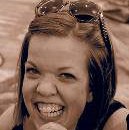- A
- A
- A

Handle With Care
For many of us, we wear many hats: we’re moms, dads, students, employees, writers, committee chairs, pet owners, volunteer coordinators, and movers and shakers, but we also may have a body that has, most likely, been medicalized due to a disability.
But as one that wears many hats, my question today is: how do we take care of ourselves while wearing many hats? And having a disability, unfortunately, often means that our bodies are medicalized, treated and often regarded as needing medical care, but how do we nurture and take care of the body we’re in without it meaning we’re always at the doctors office?
Loving the body we’re in, is a process that, disabled or not, does not come naturally in today’s society. We are bombarded with messages that you can’t be too fat, too skinny, too tall, too short, too hairy or too bald, but that often leads us to question what we CAN be. But if we have a disability, that question seems to be more complicated, as these cultural standards are even farther away from our reality. The challenge then becomes finding ways to care for our bodies that are not driven by unhealthy, unattainable, stereotypes of normality.
In a world of Botox and tummy tucks, it is easy to internalize the messages of the beauty magazines and begin feeling down on who you are and the skin you live in. For disabled people, many times normalization is not presented as elective, but as medically necessary. This is more than just about whether or not a medical insurance company will fund the procedure, but is also about the message we are given regarding how our bodies are not good enough to the point that we are told we have to change them in radical ways to achieve “health.”
After a lifetime of being told that our bodies are not good enough, it may be easy to just ignore the fact that we have bodies. Maybe it is just easiest to live a life that makes our body the lowest priority, since its importance to others has always been so exaggerated. However, while this may feel like an act of resistance, the best way to counter the medicalization of our bodies may not be to deny that we have bodies, but to love the bodies that we have. Taking care of your body does not have to mean normalizing it. It can mean finding ways to be healthy that are completely your own.
So whether that means being involved in disabled athletics, getting a massage, practicing seated yoga, meditating, learning about clean eating or exploring your sexuality, I hope you consider the importance of pursuing health because you love your body and not because others have told you to change it.
Leah Smith is a writer, communications professional and disability advocate. Leah holds a Bachelor’s in Public Relations and a Masters in Public Administration and Policy. She has focused her career on creating access and equality for all. Leah currently resides in Philadelphia with her partner and two dogs.